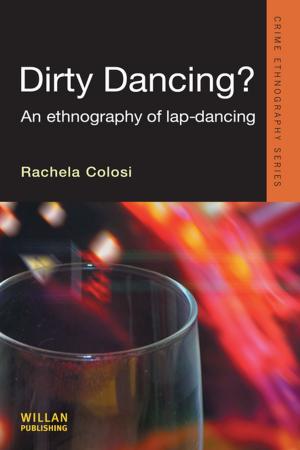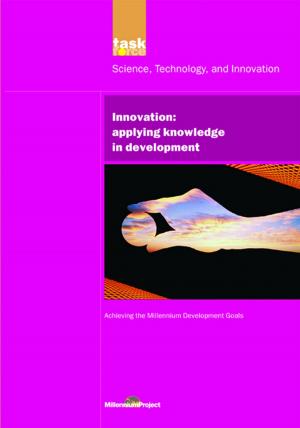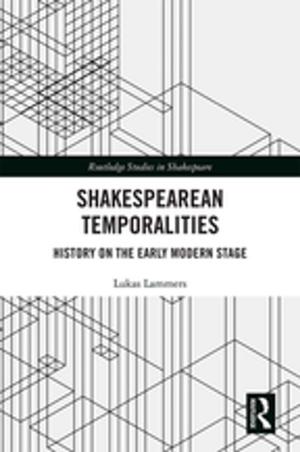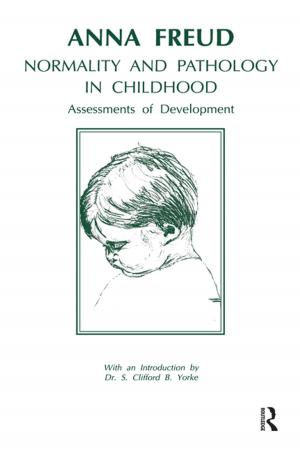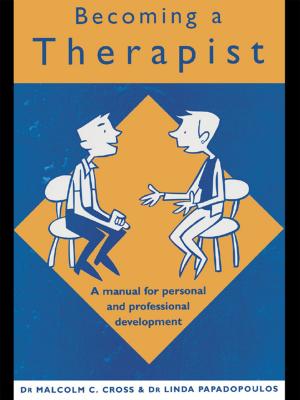Heinz Kohut
The Chicago Institute Lectures
Nonfiction, Health & Well Being, Psychology, History, Psychoanalysis, Mental Health| Author: | ISBN: | 9781134882496 | |
| Publisher: | Taylor and Francis | Publication: | May 13, 2013 |
| Imprint: | Routledge | Language: | English |
| Author: | |
| ISBN: | 9781134882496 |
| Publisher: | Taylor and Francis |
| Publication: | May 13, 2013 |
| Imprint: | Routledge |
| Language: | English |
Delivered to advanced candidates at The Chicago Institute for Psychoanalysis in 1974-75, The Chicago Institute Lectures reveal a Kohut in transition, a Kohut wrestling with the creative tension in psychoanalysis between tradition and innovation, between continuity and change, even as he worked toward the psychology of the self "in the broad sense" that marked his decisive break from traditional psychoanalytic thought. Lightly edited by the Tolpins to preserve their authenticy, these lectures preserve the voice, the intellectual style, and the pedagogical bearing of a gifted creator in the very midst of creation.
We find here a casual Kohut, thinking through in a relaxed and conversational way the assumptions that would become foundational to mature self psychology. The developmental trajectory of self-selfobject relationships, the role of selfobject failures in different types of psychopathology, the complex relationship between givens and the psychological environment in pathogenesis, the role of conflict in normal development and in psychopathology--these are among the recurrent themes taken up in these lectures. And there are, as well, Kohut's provocative asides on the child-rearing practices of his day, including the contrast between over- and understimulation, the impact of healthy parental sexuality on child development, and the difference between the normal oedipal phase of the self and the Oedipus complex. The clinical viewpoint of mature self psychology is anticipated in many ways, perhaps no more clearly than in Kohut's powerful reassessment of the perversions.
The Chicago Institute Lectures are more than a key historical document in the evolution of psychoanalytic self psychology; they preserve the voice, the intellectual style, and the pedagogical bearing of a gifted creator in the very midst of creation.
Delivered to advanced candidates at The Chicago Institute for Psychoanalysis in 1974-75, The Chicago Institute Lectures reveal a Kohut in transition, a Kohut wrestling with the creative tension in psychoanalysis between tradition and innovation, between continuity and change, even as he worked toward the psychology of the self "in the broad sense" that marked his decisive break from traditional psychoanalytic thought. Lightly edited by the Tolpins to preserve their authenticy, these lectures preserve the voice, the intellectual style, and the pedagogical bearing of a gifted creator in the very midst of creation.
We find here a casual Kohut, thinking through in a relaxed and conversational way the assumptions that would become foundational to mature self psychology. The developmental trajectory of self-selfobject relationships, the role of selfobject failures in different types of psychopathology, the complex relationship between givens and the psychological environment in pathogenesis, the role of conflict in normal development and in psychopathology--these are among the recurrent themes taken up in these lectures. And there are, as well, Kohut's provocative asides on the child-rearing practices of his day, including the contrast between over- and understimulation, the impact of healthy parental sexuality on child development, and the difference between the normal oedipal phase of the self and the Oedipus complex. The clinical viewpoint of mature self psychology is anticipated in many ways, perhaps no more clearly than in Kohut's powerful reassessment of the perversions.
The Chicago Institute Lectures are more than a key historical document in the evolution of psychoanalytic self psychology; they preserve the voice, the intellectual style, and the pedagogical bearing of a gifted creator in the very midst of creation.





